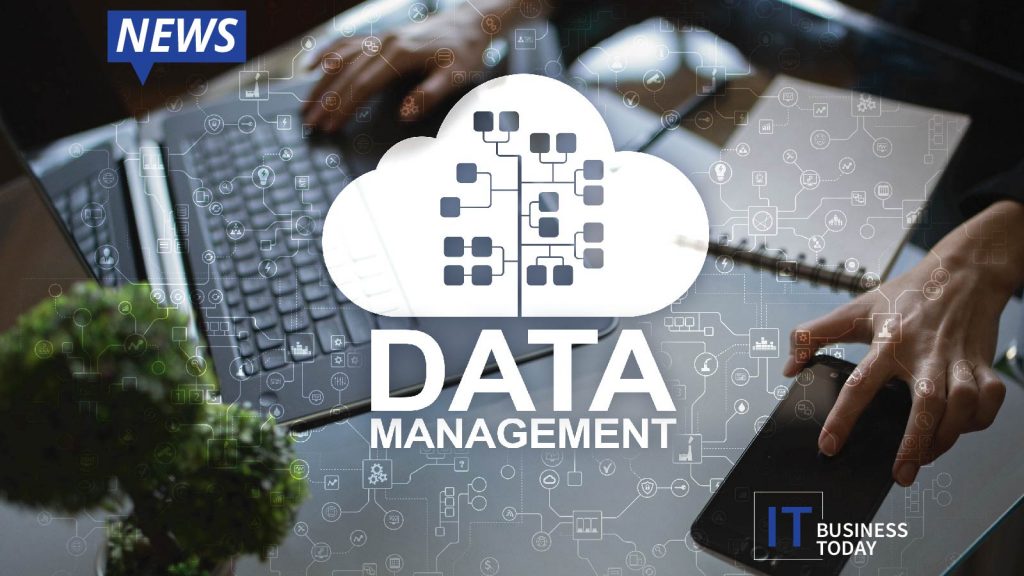Informatica®, the enterprise cloud data management leader, today announced it has updated its Intelligent Data Platform
“In today’s era of Data 4.0, and as businesses navigate an increasingly complex landscape, digital transformation must be data-led,” said Amit Walia, CEO of Informatica. “Today’s release empowers data leaders to create more value and improve operational efficiency, all while ensuring business continuity. By introducing more automation and intelligence capabilities – powered by CLAIRE – businesses can accelerate ROI, decrease risk and improve productivity across hybrid and multi-cloud environments.”
Highlights include:
- Updates to Informatica Cloud Native Data Management Solution for Cloud Data Warehouses, Data Lakes, and Lakehouses
Updates to Informatica’s Cloud Native Data Management Solution for Cloud Data Warehouses, Data Lakes, and Lakehouses deliver high availability and upgrade management enhancements for business continuity to avoid downtime from scheduled events and upgrades without job interruption, including:
-
- Support for serverless computing, intelligent pushdown processing, auto-tuning and auto-scaling, as well as a heatmap for integration jobs for optimizing performance, resources, and schedules.
- End-to-end support for DataOps and MLOps, including enhanced support for schema drift, data quality transformations and deduplication, blockchain and image transformations, data pipeline and data prep recipe recommendations, similarity-based pipeline categorization, and streaming data lineage.
- Enhanced cloud ecosystem support, including for Microsoft Azure, Amazon Web Services (AWS), Google Cloud Platform (GCP), Snowflake, and Databricks.
These updates will empower organizations to build lakehouses in the cloud by merging data warehouses and data lakes into one platform, combining technologies for business analytics and decision-making with those for exploratory analytics and data science. Compared to on-premises data warehouses and data lakes, this modern approach offers more flexibility and agility at a lower cost.
- Updates to Informatica’s Intelligent Cloud Services (IICS)
- With this release, Informatica supports application and data continuity with blue-green execution, continued job execution when workers change, and AI-powered operational insights with abilities such as preventive actions based on alerts for application and data integration.
- Informatica’s next gen iPaaS enables teams to build resilient and reliable integrations while providing 24/7 operations with global availability on AWS, Azure & GCP. No-code development tools empower application experts to build composable APIs and services and expose these in the API portal for easy consumption. Additionally, it offers the ability to integrate with corporate GitHub version-control tooling and provides controlled deployment and codeline management.
- Informatica delivers more AI/machine learning-powered capabilities to automate data and application integration tasks with design-time recommendations, runtime autoscaling, easy-to-build ingestion processes, data quality rule recommendations for profiles and PII identification, and blocking of APIs.
- Cloud Data Quality extends capabilities to deliver easy-to-use parsing and de-duplication integrated into IICS.
- Updates to Informatica Data Governance & Privacy Solutions
With CCPA enforcement expected to begin after July 1, and continued efforts to improve compliance with GDPR, Informatica’s best-of-breed privacy operations suite delivers ease of adoption, avoiding complicated integrations with shared metadata intelligence.
- A new privacy analytics and intelligence dashboard within Data Privacy Management (DPM) enables organizations to accelerate compliance and measure progress and performance.
- Subject registry updates help organizations automate responses to data subject requests (DSRs), aligning with policy alignment and catalog metadata intelligence for expanded insights, enabling data transparency that extends the value of governance solutions, and reducing the cost of compliance and time-to-value for privacy mandate compliance.
- Additional features include a new unstructured data scanning agent that improves performance and accuracy while reducing false positives, and updated extensibility to support Microsoft SharePoint and OneDrive.
- Updates to 360 Solutions & MDM
Since most organizations use multiple cloud providers, they need the flexibility to deploy MDM on the cloud provider of choice. Multi-cloud deployment of Informatica MDM accelerates time to value and insights, while lowering costs and improving productivity.- Informatica MDM is now supported on AWS, Azure and GCP, eliminating the need to buy and set up hardware for MDM deployments. Businesses only need to purchase the MDM processing power they need and can automatically scale to address future requirements as record and domain volumes grow.
- Updates to Customer 360 for Salesforce, Reference 360, and Product 360 allow businesses to master their business-critical data to increase customer retention and loyalty, manage supply chain risk, drive digital commerce, and boost operational efficiency with the industry’s only multi-cloud MDM solution delivering enhanced dashboards, improved search requests, faster exports, and more.
- Onboard new suppliers faster, and get visibility into tier-1, tier-2, and tier-3 suppliers and their performance, leading to better supply chain planning during crises, as well as cost savings.
- Platform, AI, and Data Cataloging
As data drives digital transformation, its importance as a strategic asset has grown – but most organizations’ understanding of data and its value is limited by their inability to catalog all data across legacy systems and newer cloud applications, an incomplete view of data lineage, and no ability to measure data value and risks. With this release, Informatica delivers new capabilities to effectively manage enterprise data as an asset, including:- The industry’s first and only data balance sheet that is based on a metadata-driven automated data valuation framework to capture data value and identify levers for data asset appreciation and risk, enabling more effective management of data as a strategic asset.
- Data Asset Analytics (DAA) with data value reports and dashboards for instant visibility of data asset usage, inventory, enrichment, collaboration, and value.
- The industry’s only catalog of catalogs now extends the industry’s broadest metadata connectivity and lineage with new scanners for enterprise applications, cloud data lakes, Informatica MDM, and NoSQL databases. The catalog also includes an enhanced lineage diagram, enabling data discovery and curation at enterprise scale across hybrid and multi-cloud.
